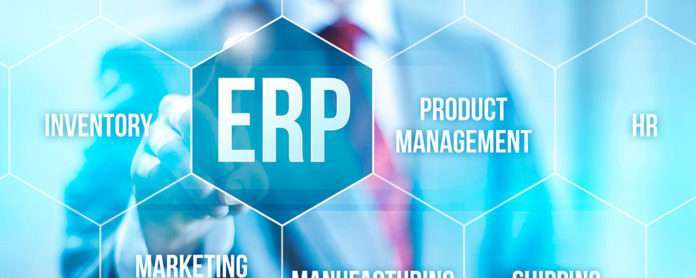An ERP (Enterprise resource planning) is essentially the integrated management of main business processes, often brought about by software and technology in real-time. These systems benefit industries exponentially, looking at how they can improve efficiency overall when compared to having no ERP systems at all. In this article, you will know about Crucial ERP Systems For Automotive Industry.
Automotive industries are one of the world’s most largest economic sectors in terms of revenue, and knowing how ERP systems are very efficient systems to industries, it would be exceedingly beneficial to these industries to incorporate an ERP system to further increase their efficiency in designing, developing, manufacturing, marketing and selling motor vehicles. That being said, there are many crucial ERP systems for automotive industries to help them further flourish.
Some of the most crucial ERP systems for automotive industries would be as follows:
- An ERP system focusing on IT costs:
ERP systems that focus on IT costs work very well when used in the automotive industry – it increases efficiency as it unifies all IT costs. The ERP system would contain all the costs of the essential and necessary resources needed to dedicate toward staff, infrastructure, support teams, etc. Without this system – having all the costs of the resources required into one system – efficiency decreases because then you would need multiple systems dedicated to each sector in the industry which can be a tedious task to manage, it is not time efficient and there may also be additional costs towards separate systems. For instance, you would need a separate system to manage the costs of the designing sector of the automotive industry, a separate one for the development of the industry, etc. Thus, having a system that combines all the costs into one system would help save time and further increase the efficiency of the automotive industry.
Odoo is one example of an ERP system that implements this feature.
- An ERP system with quality customer service:
Any ERP system that incorporates an up to par customer service is sure to help the automotive industry flourish – because client information is concentrated and smooth running with the help of the customer service in the system, the sales team would be able to focus on building and maintaining customer relationships instead of having to maintain spreadsheets. A successful business would be concerned about customer acquisition and retention thus, automotive industries would really benefit from implementing an ERP system with customer service as one its prime features. An ERP system with customer service would be able to manage both recurring and regular orders, have automated flexible price policies, APT and CPT capability, credit limit management with online checking, EDI processing, etc. And since automotive industries are known for being one of the largest economic sectors in terms of revenue, incorporating a system with customer service would allow the industry to manage and keep revenue as high as possible. That being said, the ERP system, Odoo, really incorporates this feature very well.
- An ERP system with enhanced collaboration and communication:
Having a system that can eliminate the problems of having to manually combine data from different software systems and processes is extremely useful when used in the automotive industry.
Collaboration is an essential part of a thriving business. Often businesses find their teams working in silos because collaboration takes more time and effort but when an ERP system with enhanced collaboration and communication is used, collaboration becomes much easier. By providing an interdepartmental database, where information from each department is channelled into one centralised location, ERP systems can streamline the process of collaborating and communicating with others by providing its employees with access to data whenever it is necessary. This then allows for real time project updates and significantly greater communication across the entire company. Each and every single employee would have an on-demand access to the variety of data, allowing them to see a wider image, thus giving the employees the tools necessary for making bold decisions while making them feel valued. The overall effect of this enhanced collaboration and communication in ERP systems would increase the businesses efficiency, increasing higher employee engagement.
- ERP systems with facilitated regulatory compliance:
Many businesses, including those in the automotive industry, would find it difficult to meet compliance requirements. Automotive industries can only continue if the company manages to comply with various regulations under the Federal information security management act and many other regulations. Deploying an ERP system with modules that are specifically designed for regulatory compliance makes the obstacle far less formidable, giving you the ability to generate and manage secure reports to submit to relevant regulatory bodies. Reports like these can also be automated, reducing the overall cost of continual audits.
- ERP systems with optimized production and inventory management:
Organisations rely heavily on stable inventory and production processes and ERP systems with optimized production and inventory management can help simplify the inventory process, avoiding problems like holding costs, where you would end up keeping excess inventory and incur unnecessary costs in the process. Also, ERP systems that incorporate modules like this makes processes more efficient in the automotive industry by synchronising the delivery of raw materials precisely with the start of production. Systems like this, when used, would make the automotive industry become leaner with each specific process in the inventory and production system happening for a specific reason, thus giving you accurate and reliable data to use instead of relying on conjecturing and estimating.
ERP systems that incorporate all these factors are highly crucial for the success of an automotive industry, and most certainly there are many more features that would help the automotive industry fulfil its purpose better. However, ERP systems that have all these features mentioned above can be considered to be the bulk of the whole ERP system and the most practical for the industry. Odoo ERP is a substantial ERP system to use for automotive industries as it incorporates all the features above very well and the usability and interface is very simple and easy to use. Without an ERP system as crucial as this, automotive industries would be much less efficient, much more difficult to manage, and profit would be far less than when an ERP system (such as Odoo) is used.
















